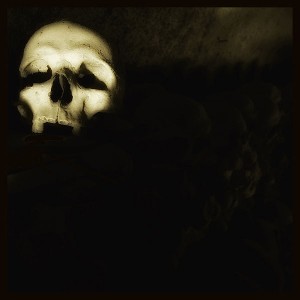We think very strongly that Theatre is a forum for citizenship. For this reason we invited academics and friends alike to contribute essays that relate specifically to this production or issues raised in the script.
The following essays cover a wide range of viewpoints in order to inspire conversation and lively exchange of thoughts at our talk back conversations that will happen in April after every show. If you would like to submit a reflective essay yourself (max. 500 words), please email info@hamletmachine.ca.
Assaulting the Canon: Hamletmachine
– by Steven Taubeneck
Associate Professor, Department of Central, Eastern and Northern European Studies, UBCHeiner Mueller’s Hamletmachine, written in 1977, challenges everyone involved on many levels. In the first place, the play re-enacts one of the most canonical works in Western literature, Shakespeare’s Hamlet. But how should the re-enactment take place? Should the characters appear in period costumes? Should there be a setting for them to inhabit? What about the machine element of the play? I will argue that Mueller’s play constitutes an assault on Shakespeare’s Hamlet and all that it represents. (read more)
Müller’s Hamletmachine: Postcards from The University of the Dead
– by Reid Gilbert
Adjunct Professor, Department of Theatre and Film, UBCIn Hamletmachine, a chorus of philosophers “[f]rom their gravestones (cathedrals) [. . . ] throw their books at Hamlet” (4). This business, linked in various ways to other stage images that augment and expand the central political and psychological action among Hamlet, The Actor-Hamlet, and Ophelia—including the appearance of “[t]hree naked women: Marx, Lenin, Mao,”(7) and the “[t]earing up of the photograph of the author”(6)—reminds of Derrida’s “revelatory catastrophe” (Derrida 10) in discovering a postcard depicting a seated Socrates writing as scribe to Plato, who stands behind him. And it foreshadows Ophelia’s final speech (read more)
A “Me experience of you”
– by Drs. Gustaaf Tasseron
I read the Hamletmachine in German and English, I reread Shakespeare’s Hamlet story, of which I saw a fantastic dance performance in Helsingør, Denmark with the stage extending from the walls of the story’s castle. I also started to read the comments to the Hamletmachine, the problems of staging it and found myself more and more sucked into the dreary analyses and yesterday’s difficulties of a play and its outfall, which is basically ‘zum Kotzen’ (to rack and vomit). This could be common to the Hamlet story, in which everybody dies in the end, not peacefully, but violent by poison and sword, or in suicide. (read more)
Hamletmachine: A Visual Interpretation
– by Sandra Chamberlain-Snider MA Theatre Studies UBC Department of Theatre and Film
Ines Ortner’s MFA design thesis project, Hamletmachine, based on the Heiner Müller play, creates a visual world that compels the spectator to re-imagine notions of beauty and horror. These ideas are presented in shifting forms of images presenting the complex body on stage, a process that reflects the political and social context of Müller’s play with similarly uncomfortable tableaux. Ortner mediates the theatrical presentation of horror through a mechanistic lens that reveals the beauty in the unfamiliar and grotesque. (read more)


